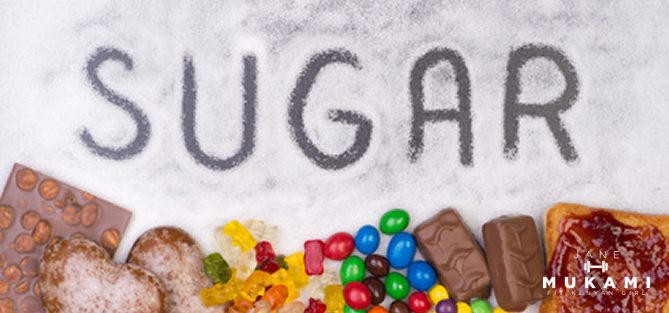
Sugar. It’s something that you’ve been told time and time again that you need to be avoiding. But, what’s really so bad about sugar? And, how much sugar is acceptable?
A Primer On Glucose
The first thing to realize is that all carbohydrate rich foods will be broken down eventually into glucose, which is another name for sugar. It’s this glucose that supplies energy for all your body’s cells. Doesn’t seem so bad, right?
The problem is that some foods convert much more quickly to sugar in the body (or worse, enter the body as pure sugar) than others do. When this happens, they will spike blood sugar levels, which then triggers the release of a hormone called insulin from your pancreas, which then rapidly removes all this sugar out of the blood stream.
Where does it take the sugar? To your body fat stores. The faster you get that rise in blood sugar, the more likely you are to gain body fat.
Instead, when you eat foods that break down more slowly in the body, they don’t produce this spike in blood sugar and as such, simply deliver slow, usable energy to the cells over time. It is therefore important to eat slow digesting foods that will not spike your blood sugar.
So while all foods will eventually end up a sugar, it’s how they get to that state that really matters in terms of whether or not you gain weight.
Other Issues Related To Sugar
In addition to potential weight gain, other problems with sugar include:
- Increased risk of tooth decay
- Low energy levels (after a temporary energy high)
- Increased risk of diabetes
- Increased risk of heart disease
- Increased risk of nutritional deficiencies (as foods rich in sugar often contain little nutritional value)
As you can see, eating a high sugar diet is simply not a desirable move if your health is important to you.
Sources Of Sugar To Know
Remember that sugar comes in more forms than just the table sugar you sprinkle on your cereal. Sugar is everywhere. Start reading food labels to find out where it lurks.
Here are just a few of the common sources of sugar and the amount include:
- Yogurt – 10-25 grams of sugar depending on the variety
- 1 cup of Mango – 23g of sugar depending on how ripe
- 1 cup of juice – 29 grams of sugar
Ideally you should aim to get no more than 10% of your total calorie intake from sugar. How much are you taking in?
See more at: http://janemukami.com/blog
